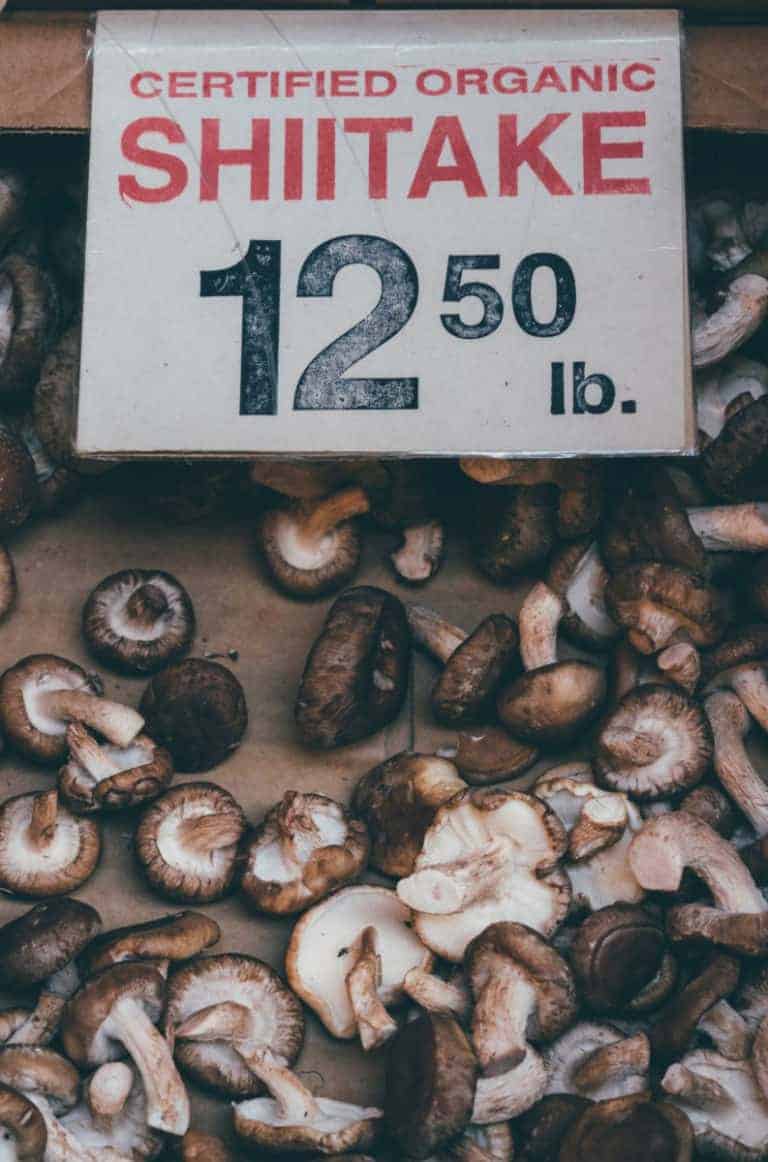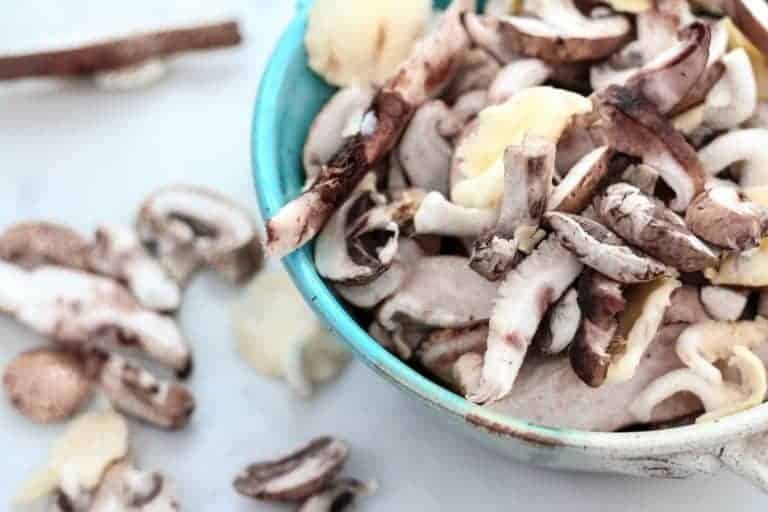Lion’s Mane: The Fantastic Mushroom to Boost Your Brainpower

As contemporary biomedical research trends have gravitated towards traditional eastern medicines such as medicinal mushrooms, Lion’s Mane has recently taken center stage. Studies around the world are increasingly showing it to be one of the most intelligent and remarkable mushrooms, with many associated health benefits.
In this article, we are going to take a detailed tour through Lion’s Mane and what its unique bioactive compounds have to offer for our brains and bodies. We’ll also take a look at the best ways to consume it to maximize its benefits and great taste, as well as how to grow it yourself easily at home.
What is Lion’s Mane?
Lion’s Mane goes by many names, including pom pom mushroom, bearded tooth mushroom, and monkey head mushroom. All of them are very apropos names considering the mushroom’s striking and unique look. Indeed, it looks nothing like an ordinary mushroom sporting a traditional cap and stem. The mushroom grows as a single lump of easily identifiable, dangling white spines. These icicle-looking teeth help the mushroom release spores to reproduce, which the gills on conventional-looking mushrooms also function to do.
It is native to much of North America, Europe, and Asia (the latter of which it is commonly referred to as Yamabushitake) and grows mostly during the late summer and early fall. Being parasitic to certain hardwoods such as American beech, it can usually be found on the wounds of living hardwood trees or on recently cut trees. It also decomposes dead plant matter, otherwise known as saprotrophic.
It is usually recommended to gather as a beginning foragers because of its unmistakable form. No need to look at spores under a microscope to ID this impressive looking mushroom. In addition to being found in the wild, the mushroom is commonly cultivated around the world on various substrates such as rice grain and wood for eating and/or supplemental use.
The Many Bioactive Components of Lion’s Mane
Lion’s Mane is constituted by many bioactive polysaccharides, including beta-glucans which are found in a variety of other medicinal mushrooms. However, it is unique in that it contains over 30 bioactive components known as hericenones (found in the fruiting bodies) and erinacines (found in the mycelia). These alcohol-soluble terpenes are named after the Latin name of the mushroom, Hericium erinaceus. They are known to stimulate Nerve Growth Factor (NGF), a protein that is implicated in regulating the growth, maintenance, proliferation, and survival of nerve cells. This particular fact gives it extraordinary therapeutic potential and what has spurred a lot of the recent research on the mushroom.
Nerve Growth Factor by itself is a large protein that is not bioavailable because it does not readily cross the Blood Brain Barrier (BBB), the barrier that restricts the ability for many compounds to cross from the bloodstream to the brain. Erinacines and Hericenones are ideal NGF-promoters because their low molecular weight lets them readily bypass this barrier and interact with the central nervous system.
Taken together, these compounds may support the rebuilding and preservation of nerves that are damaged from physical trauma or disease and/or declining from aging.
The Surprising Health Benefits of Lion’s Mane
Lion’s Mane has been associated with a wide range of health benefits, but we’re going to focus on some of the most well-supported benefits backed by modern studies in humans and animals.
Lion’s Mane Improves Depression and Anxiety
Given the general cognitive-enhancing properties of the polysaccharides found in Lion’s Mane, several researchers have set out to investigate the anti-depressant and anti-anxiety effects of the mushroom.
In a 2018 study utilizing a mouse model of stress, researchers used an ethanol extract of Lion’s Mane mycelium enriched with erinacine A (one of the several erinacines found in the mushroom). This was given to mice at doses of 100, 200, or 400 mg/kg body weight for four weeks. The mice given the extract showed a significant reversal of behavioral indicators of stress and depression relative to controls, mostly through the extract’s modulation of neurotransmitter levels and immune-related proteins.
In one human study from 2010, 30 females were split into two groups and were given either Lion’s Mane powder (baked in the form of cookies) and a placebo. After four weeks, the objective scores of depression and anxiety were significantly less compared to controls.
Overall, more research will be needed to investigate how much Lion’s Mane improves depression and anxiety (and how long post-treatment), but the currently available studies show that the mushroom has promising anti-depressant and anti-anxiety activity. This makes it a potentially effective supplemental treatment for affective disorders and behavioral disorders.
Lion’s Mane Improves Memory
The mushroom has exciting potential to treat cognitive decline in patients with neurodegenerative conditions and may support memory and cognitive function in healthy individuals.
In a 2016 study using an Alzheimer’s mice model, Lion’s Mane dose-dependently enhanced the performance of mice on various spatial memory maze tasks relative to controls by increasing the activity of the cholinergic system. Acetylcholine is a neurotransmitter that is important for motivation, cognitive functioning, and memory.
In another similar rodent study from 2011, Lion’s Mane was given to a group of mice induced with learning and memory deficits through a protein responsible for Alzheimer’s Disease pathology. Over a 3-week period, these mice, compared to controls, demonstrated significantly improved performance on spatial memory tasks and novel object recognition tasks.
Clinical trials in humans have also shown efficacy in treating the symptoms of mild cognitive impairment (MCI). In a 2009 double-blind, placebo-controlled trial from Japan, subjects with MCI were given four 250mg tablets of Lion’s Mane powder or placebo. After 16 weeks, the Lion’s Mane group had improved cognitive function as assessed by the Revised Hasegawa Dementia Scale (HDS-R). The researchers noted, however, that scores decreased four weeks post-treatment.
Overall, Lion’s Mane may be a highly effective add-on to any treatment for cognitive dysfunction. Therapeutic programs like this one have incorporated Lion’s Mane into the diets of individuals with memory issues and cognitive impairment with great success, letting some who weren’t working return to work, for instance.
In healthy persons, Lion’s Mane may be a promising nootropic and support healthy aging and ameliorate or slow age-related cognitive decline.
Lion’s Mane Promotes a Healthy Immune System
Lion’s Mane is rich in beta-glucans, a group of bioactive polysaccharides that are well-known for their immunomodulating properties.
Several polysaccharides found in Lion’s Mane have been implicated in mice studies to functionally enhance cell-mediated and humoral immunity by increasing the levels and activity of several immune cells, notably Natural Killer cells, macrophages, and lymphocytes.
Other studies such as this one from 2017 have found that the polysaccharides support the immune system by their influence on beneficial bacteria found in the gut. The byproducts and composition of these bacteria (collectively called the gut microbiome) are increasingly being understood to play a crucial role in immunity and the regulation of inflammatory diseases.
Supplementing with Lion’s Mane may help to support our immune system in fighting off foreign pathogens by strengthening our body’s natural defenses. If may be a great add-on treatment for those who are immuno-compromised or to support healthy immune function in healthy individuals. One study even found that mice given Lion’s Mane extract had a nearly quadrupled lifespan compared to controls after being injected with a deadly dose of Salmonella bacteria.
Lion’s Mane Supports Digestive Health
With its rich content of beta-glucans, Lion’s Mane can help reduce inflammation and ameliorate various digestive disorders. The available evidence is mostly in the form of animal studies
In a 2016 study of mice with ulcerative colitis, Lion’s Mane extract for seven days improved body weight and intestinal bleeding and protected the mucosal epithelium compared to controls. Its mechanism of action, in this case, was thought to be related to its inhibition of pro-inflammatory cytokines that are responsible for an inflammatory response.
In another study from 2015, Lion’s Mane mycelium extract was demonstrated to have, in a dose-dependent manner, anti-gastritis and anti-ulcer activity in mice compared to mice that did not receive the extract.
The Best Ways to Consume Lion’s Mane
Lion’s Mane can be consumed either in supplement form (capsules, powders, and sometimes liquid extracts) or as a culinary dish. While also being a super brain-booster, it is actually very great on a plate too!
Lion’s Mane Supplements
Supplementing with Lion’s Mane, particularly extracted forms, may be the most efficient and effective way to receive wide-ranging health benefits. The best way to supplement Lion’s Mane is with products that use dual extraction methods, both with water and alcohol. This makes available the water-insoluble compounds that wouldn’t normally be present in water extracts alone. This then ensures the presence of all of the bioactive ingredients for maximal therapeutic potential.
Many reputable sellers provide a third party analysis report that contains information on how its extracted and the rough estimate of polysaccharide content. Some of the producers of Lion’s Mane in the west cultivate Lion’s Mane on grain or brown rice, which unfortunately results in a lower-quality product because the capsules contain a large amount of starch, which has no therapeutic benefit. To learn more about choosing the right medicinal mushroom supplement, this article provides a rundown. Lion’s Mane that is not heated or not extracted is not readily bioavailable due to the mushroom’s tough cell walls made of chitin, which “lock in” the beneficial compounds.
Supplements can be purchased either as capsules or in powders. Oriveda and Real Mushrooms are two companies that offer high-quality Lion’s Mane extracts that clearly label the bioactive ingredients in the Supplement Facts. Four Sigmatic also makes high-quality Lion’s Mane in the form of extract powders alongside either roasted or instant Arabica coffee and other functional mushrooms like Chaga and Coryceps.
Most of the available research uses the mushroom in extract form in doses ranging from 30-300 mg/kg body weight. For capsules, that is about 900-1.8g per day, but of course, the potency of the product also has to be factored in when deciding how much to take. When taking Lion’s Mane, taking vitamin C alongside it can help with the absorption of beta-glucan. It is best to take with food, or, if looking specifically for its immune system-promoting effects, taken 30 minutes before meals is best.
From many reports online, effects aren’t very pronounced until at least 4-6 weeks, and based on some clinical studies, it should be taken consistently to reap the benefits.
Eating Lion’s Mane
Lion’s Mane is very popular in Asia eaten as a health food. In fact, in many cultures its seen as a delicacy and a regal treat. Lion’s Mane is great by itself or with other ingredients as a side dish.
The mushroom can be sliced into steaks and sautéed with butter (or coconut butter) on medium-high heat. It has a rich, lobster-like taste and stringy, meaty texture. If you’re a vegan but enjoy the taste of seafood, cooking with this mushroom might be for you! It also soaks up other sauces and flavors well, which adds a ton of flexibility to cooking with them.
One awesome recipe makes Lion’s Mane “crab” cakes, which taste deliciously similar to real crab and flaunt all of the awesome health benefits of Lion’s Mane, including its polysaccharides and wide-ranging nutrient content. Other great recipes to try include Lion’s Mane cream soups, Lion’s Mane pasta (a whole new take on lobster mac and cheese), and Lion’s Mane
Cooking (just like the extracted forms of Lion’s Mane) breaks down the tough cell walls of the mushroom, letting all of these beneficial ingredients loose for you to enjoy. However, if you’re just after the health benefits, it might be best to supplement with Lion’s Mane extract for potency reasons.
The trick to cooking with Lion’s Mane is to cook them slowly until they are golden-brown. The high water content has to evaporate before they become chewy and great tasting. To preserve Lion’s Mane, sauté and then freeze rather than dry them. The high water content doesn’t lend itself well to the dehydration process (but it can be done). Before cooking, Lion’s Mane can be stored fresh just like other gourmet mushrooms, in a paper bag for about a week in the refrigerator.
Lion’s Mane Safety
The mushroom and its extracts are generally very well-tolerated, with no serious adverse side effects even in high doses (except, of course, in those allergic to mushrooms). Some people have noted skin rashes or itchiness after consumption, which some people believe may be an effect of increased Nerve Growth Factor in the body.
Pregnant and breastfeeding women are generally advised to not take Lion’s Mane supplements (or other medicinal mushroom supplements) since its interaction hasn’t been understood in currently available research. People taking immune-suppressing medication or with sensitive blood sugar levels should also consult with a medical professional before using Lion’s Mane extracts. Its immune-stimulating effects may work against medications and have an effect on blood sugar.
Grow Lion’s Mane Yourself!

Lion’s Mane can be easily grown at home from home using grow kits. This grow kit is an easy and great way to enjoy Lion’s Mane and watch the mushroom’s life cycle from incubation to harvest. The grow kit consists of a grow bag designed for breathability filled with a pre-colonized substrate. All it requires is a light misting every day until its ready to be harvested. It can produce up to 3-4 flushes over a few months, leading to approximately four pounds of Lion’s Mane.
Lion’s Mane can be bought as a mycelium culture to grow from spores or as wooden plugs to incubate grow logs in the outdoors. Growing from culture is more ambitious than the other two and requires highly sanitary conditions, so it may not be the best option for a beginner. Be sure to check out the article on the beginner’s guide to growing mushrooms to get started on growing your own.
Final Thoughts
Based on the research so far, Lion’s Mane is a highly promising neutraceutical. Apart from its great nutrition and antioxidant content, it has extraordinary potential to help prevent and treat a wide range of cognitive disorders and keep the immune system and digestive system in good health thanks to several dozen unique nerve-stimulating compounds.
Research on Lion’s Mane is a recent and ongoing phenomenon, and much of what we know is preliminary and based in animals or test tube studies. However, from the human clinical trials that do exist, Lion’s Mane may end up being a highly regarded add-on treatment for dementia-related disorders and other neurological diseases. Further well-designed, placebo-controlled clinical research will have to evaluate its effectiveness alongside other primary treatment options before definitively suggesting its use for a specific disease or disorder.
Apart from its supplemental use, Lion’s makes for an excellent cooking option that is great-tasting, vegan-friendly, and highly nutritious. While oftentimes difficult to find in stores, it can be easily grown at home with a grow kit and give you pounds of this delicious, extraordinary mushroom.






